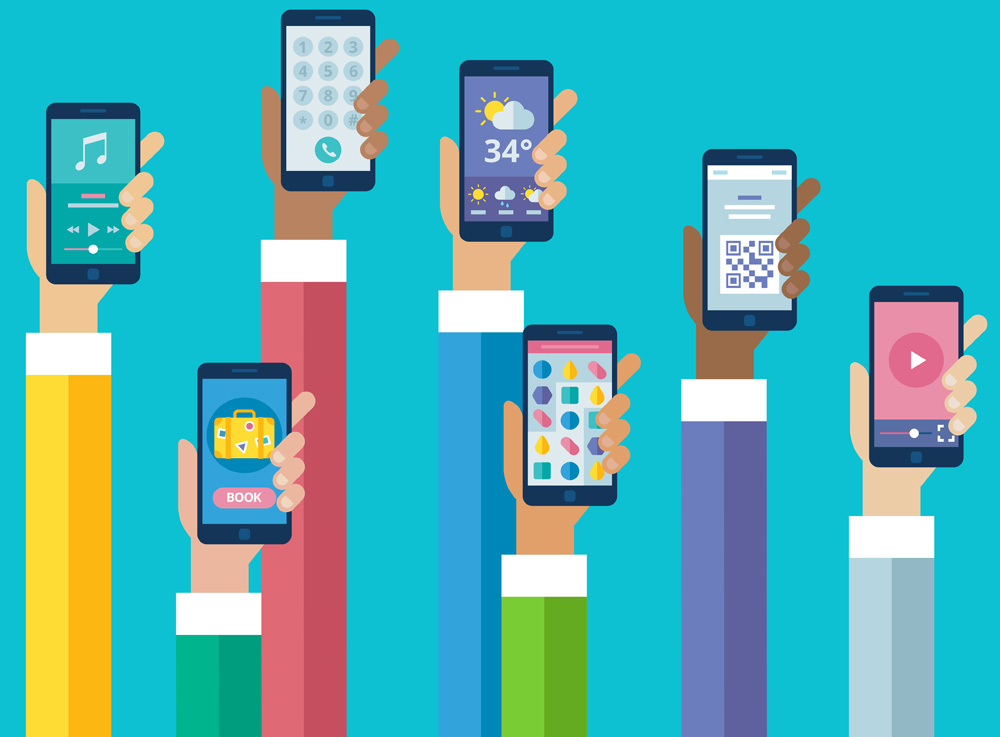The New, Applied Now This year companies will cut through the hype to see the benefits of Artificial Intelligence (AI) and the Internet of Things (IoT) as they are being applied today. No longer something to be excited about in the future, we will see how these technologies are enabling new connections, new intelligence and new experiences, and are being applied now to improve the way people live and work.
Across industries, consumer and enterprise-facing demos, I expect AI to be the ‘buzz-phrase’ at MWC this year, as Virtual Reality (VR) arguably was in 2016. I have no doubt that AI technologies such as Machine Learning will underpin many of the most exciting products and solutions on show this year. But we need to differentiate the hype from the reality, and understand what is truly AI, and what is just showing a small element of it. Otherwise, we risk the real value of this emerging technology’s potential being underestimated, resulting in a slowdown of investment and innovation.
To help cut through hype, we’ll see an increased focus on the speed to testing for new solutions. Be it a new app, an IoT pilot or an AI experiment, the increasing availability of ‘plug and play’ open platforms means new tools and solutions can be designed, developed and deployed in a matter of days. At relatively low cost and low risk, businesses will be more empowered than ever to trial-run new technologies and establish what will work for them, before committing to a global roll-out.
Competitive Advantage in the IoT
For those organisations undertaking IoT projects beyond small-scale pilots, this will be the year we see them start to define their competitive advantage. Their plans for IoT projects and the results of completed pilots will be a popular topic of conversation behind closed doors at MWC. Ecosystem discussions themselves will progress from being about ‘potential’ IoT use cases, to assessing how to implement real, impactful projects at scale to affect tangible change.
For others less advanced in their IoT implementations, MWC will be an opportunity to look around for inspiration, with strong momentum continuing to build at pace. Businesses will look to identify how new connections can transform their operations and business models, and we will see more examples of how IoT is making a difference than ever before.
Convergence of IoT and Commerce Raises potential for Blockchain
The IoT opens up huge opportunities for commerce, and Blockchain will once again be one of the most talked about technologies at MWC as we see the convergence between the IoT and commerce pick up speed.
IoT-enabled contextual commerce already exists. But at MWC, I expect to see an increase in connected devices using Machine Learning to predict what users want by analysing historical and current data. With integrated payment capabilities, devices could offer products or services at the right time, the right price and to the right place. If rules have been set, they might even autonomously order and pay for replacement parts or replenishment of groceries, without the need for any human intervention whatsoever.
I expect MWC to have some great examples of IoT devices helping people buy things, hassle-free. Blockchain will be talked about not just as a way for banks to transfer funds, but as a way to enable new transactions, and to help to make IoT commerce secure, efficient and seamless for users.
The evolution of Enterprise Mobility
A key focus will be on transforming business processes and operations. This is not just about the hardware available to workforces; it is increasingly about the disruptive technology behind them. In heavy industry, for example, the promise of the IoT to run everything at optimal efficiency is tremendous, but connected workers are a necessary component of the IoT achieving that potential. Smart headsets and watches, along with sensors and other devices, augment workers’ capabilities by integrating transformational software, and a powerful combination of mobile and cloud solutions.
Enterprise apps are also morphing into truly disruptive services. Available in an instant across a range of platforms and powered by technologies including virtual assistants, augmented reality and collaboration tools, apps enable workforces across industries – from retail to banking and to marketing – to access pertinent data on the move. They can record measurements in the field or information on the shop floor, and feed it directly to the cloud for use in analytics tools embedded across businesses. Access to this near real-time data and insight then means that better informed decisions can be made, transforming operations and experiences through new connections.
The Changing Face of Mobile Apps
Not all apps are well used and even fewer add value, so CIOs want to get their arms around whether their apps are still fit for purpose and delivering on their objectives, or else they should delete them entirely. It is increasingly likely that a job previously done by one app can now be done via a platform or service with integrated functionality. A well-designed, popular multi-tasking platform could be significantly more valuable for getting things done than lots of single-function mobile apps.
Alongside the shift to platforms to help control unwieldy app estates, the increasing number, variation and capabilities of chatbots will be notable at MWC. Chatbots can serve people in a way that suits them, and usually via platforms they are already using. These will start to eat away at the validity of apps: Why leave one app to access another, when you can order a taxi or pay for a train ticket from the one you are using? At MWC, I think we will see chatbots using AI tools starting to add demonstrable value to businesses, and excellent new experiences to users.




